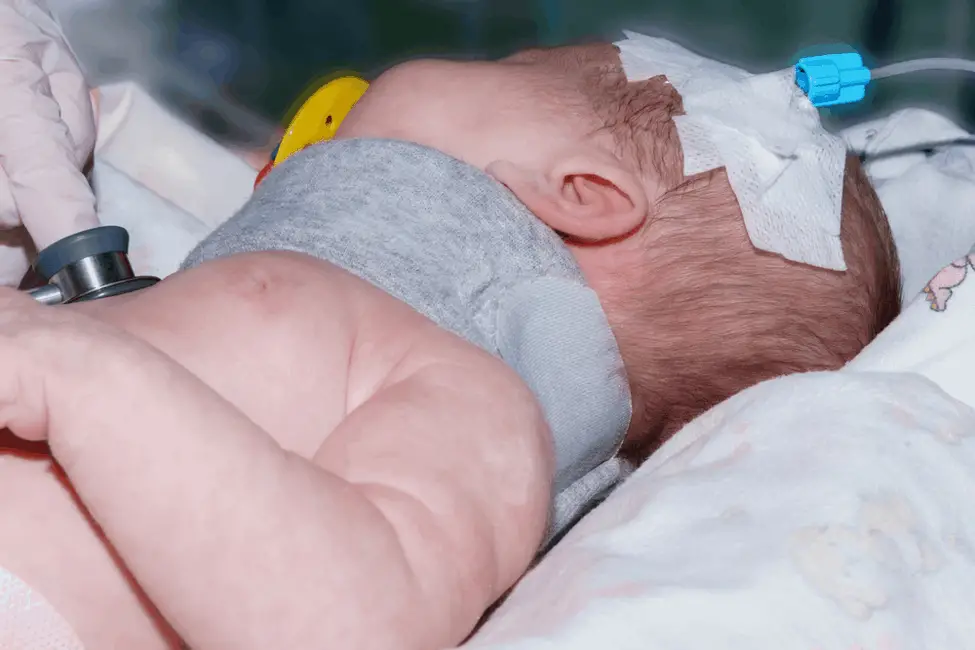Approximately 28,000 babies suffer an injury at birth in the United States each year. That is approximately six infants out of every 1,000 deliveries. This article will go over the 10 most common birth injuries, how they are caused, and how infants may be affected.
While the majority of births are safe for mothers and newborns, complications or unexpected diagnosis do sometimes happen. Birth injuries can sometimes be unavoidable, but in some cases, the injury was completely avoidable because it was the result of negligence. When doctors and other medical staff fail to live up to a high standard of care, babies and their families can suffer as a result.
If your newborn has suffered from any of the following types of birth injuries, you do not have to bear the burden alone. According to Birth Injury Lawyer, an attorney can help you get the compensation you need to get necessary treatment and care.
Cerebral Palsy
Cerebral palsy in a newborn can lead to lifelong effects like learning disabilities, speech problems, and hearing and vision impairments. Hallmarks of the condition include muscle spasms, weak muscles, and a lack of motor skills. The following are common causes of cerebral palsy in a newborn:
- Failure to monitor fetal distress
- Inadequate birth techniques
- Improper monitoring of the mother
Any of these negligent actions can result in hypoxia in newborns, which can cause cerebral palsy. Children who have been affected may require a lifetime of care and therapy. Some children can also benefit from surgical treatment.
Erb’s Palsy
This type of birth injury occurs when a newborn’s neck is extended too far during birth. The brachial plexus nerve damage that can result will affect the infant’s nerves from their spinal cord through their neck and armpit. It can continue into the newborn’s hand and fingers a well. Some mild cases will be temporary and will resolve on their own or with minimal treatment. Serious cases can result in paralysis. This happens when the nerve roots in the newborn’s spinal cord are completely dislodged.
Facial Paralysis
Facial paralysis in newborns can happen when too much pressure is applied to the newborn’s face during birth. This can happen as a result of vacuum extraction or forceps delivery. When this happens, the baby can end up unable to move the side of their face that was affected. Some infants will not even be able to close their eye on that side.
Caput Succedaneum
This non-life-threatening condition is caused when a newborn’s scalp is swollen, bruised, and discolored. This can happen as a result of pressure on the infant’s scalp during delivery, which is often caused by forceps. Although caput succedaneum typically heals on its own, in cases where bruising is involved it can lead to newborn jaundice.
Spinal Cord Injuries
Spinal cord injuries can be caused when a doctor is too forceful with the use of forceps during delivery. It is one of the most serious of all birth injuries. If a newborn is showing the following signs, they may have sustained damage to their spinal cord:
- Paralysis
- Loss of sensation
- Weakness
- Spasms
- Nerve damage pain
- Breathing difficulties
When a newborn has a spinal cord injury, the effects can be devastating. Even if the baby recovers some function, they will require long-term care.
Hemorrhage
Hemorrhage is a rare and life-threatening condition in a newborn that can be caused by a lack of vitamin K, which is necessary for blood clotting. Newborns typically receive a shot of vitamin K after birth to prevent bleeding that is caused by this deficiency. When they do not receive the injection, hemorrhage can be the result. Newborns can also suffer subconjunctival hemorrhages when a blood vessel in their eye bursts during birth.
Fractured Collarbone
Some newborns’ collarbones are fractured during delivery. Infants with this type of fracture will typically cry when they move the affected arm or when they are lifted under their arms. A newborn with a collarbone fracture may also avoid moving their arm, and when their nerves are damaged they may be unable to do so.
Some of the factors that can increase the chance of a fractured collarbone in a newborn include:
- The infant is large
- The birth canal is narrow
- The use of tools during delivery
- The newborn’s shoulder gets stuck
When medical personnel suspect a collarbone fracture may have occurred, they will order an ultrasound or x-ray to diagnose it.
Cephalohematoma
This birth injury is often caused by the use of forceps during delivery. While the condition does not harm the infant’s brain cells, it does cause bleeding under the cranial bones. When a newborn has a cephalohematoma, a raised bump will appear on their head hours after birth. This may go away on its own, or it may lead to other conditions like anemia, jaundice, low blood pressure (also known as hypotension), and meningitis.
Oxygen Deprivation
Oxygen deprivation can happen when medical staff fails to properly monitor newborns or when a fetus remains in the birth canal for too long. When newborns are deprived of oxygen during the birth process, it can lead to brain injuries that can cause a number of conditions that can last into childhood or adulthood. These include:
- Seizures
- Cerebral palsy
- Attention deficit disorder
- Behavioral issues
Even mild oxygen deprivation can lead to a lifetime of physical and emotional disabilities, making this one of the most serious birth injuries.
Perinatal Asphyxia
Asphyxia takes place when a baby’s oxygen is cut off during labor. This can result in the infant being born with a pale complexion and labored breathing. Babies who have suffered asphyxia during birth may go into shock, have seizures, or lapse into a coma.
If your child has a birth injury as a result of negligence, holding the responsible parties accountable will protect other children from being hurt. Most personal injury lawyers who specialize in birth injury law offer free initial consultations. You and your infant have rights, and an attorney will make sure they are protected.


